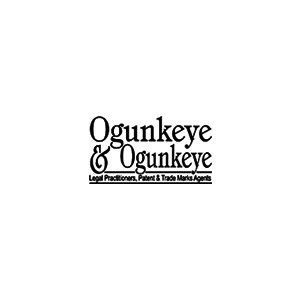Best Employment Rights Lawyers in Ibadan
Share your needs with us, get contacted by law firms.
Free. Takes 2 min.
List of the best lawyers in Ibadan, Nigeria
Nigeria Employment Rights Legal Questions answered by Lawyers
Browse our 2 legal questions about Employment Rights in Nigeria and read the lawyer answers, or ask your own questions for free.
- Employee Benefits not given 3 months after resignation
- The employee resigned and benefits had not been paid by the company after three months.
-
Lawyer answer by A.O AYENI & ASSOCIATES
This is actionable and can be enforced in court if the company refuses to pay even after writing a letter to them.
Read full answer - Next steps after suspension
- What can I do if my employer refused to call me back after serving suspension
-
Lawyer answer by Cabinet de Consultance et d'expertise juridique
Vous pouvez saisir l'organe en charge des litiges entre employeurs et employés.
Read full answer
Nigeria Employment Rights Legal Articles
Browse our 1 legal article about Employment Rights in Nigeria written by expert lawyers.
- Are Unwritten Employment Contracts Legally Valid and Enforceable in Nigeria?
- A contract of employment can exist whether orally or in writing. It can arise out of any discussion, obligation or instruction to do an act as far as the elements of a contract are present. Agreements are made to be honoured. An unwritten contract is enforceable provided it complies with... Read more →
About Employment Rights Law in Ibadan, Nigeria
Employment rights law in Ibadan, Nigeria, is primarily governed by national legislation including the Labour Act, the Employee’s Compensation Act, and the Trade Disputes Act, among others. These laws aim to protect both employers and employees, ensuring fair work conditions, the right to join trade unions, non-discrimination, and provision for settlements in case of labor disputes. The laws cover various aspects like wages, contracts, termination processes, occupational safety, and employee welfare. Understanding these legal frameworks is essential for both employees and employers in Ibadan to maintain harmonious and lawful employment relationships.
Why You May Need a Lawyer
There are several situations where individuals in Ibadan might require legal assistance concerning employment rights. These include unfair dismissal or wrongful termination, harassment or discrimination at the workplace, wage disputes, workplace safety concerns, violation of employment contracts, and during negotiations for improved working conditions. Additionally, if an employee feels their rights have been violated or if employers need assistance in adhering to employment regulations, seeking legal advice can be crucial to protect one’s interests and achieve a fair resolution.
Local Laws Overview
The Employment Rights framework in Ibadan, Nigeria, is shaped by various laws that highlight key aspects such as:
- Contracts of Employment: The Labour Act mandates written contracts for employees specifying the terms, salary, conditions of employment, and employer’s responsibilities.
- Employee Protection: Protections related to unfair dismissal, anti-discrimination laws, and rights to a safe work environment.
- Wages and Compensation: Regulation of working hours, minimum wage requirements, overtime pay, and payroll documentation.
- Health and Safety: Employers are required to provide a safe working environment and adhere to occupational safety standards.
- Trade Unions: Employees have the right to join or form trade unions as per the Trade Unions Act.
- Dispute Resolution: The Trade Disputes Act provides mechanisms for resolving employment disputes that may arise between employers and employees.
Frequently Asked Questions
What is the minimum wage in Ibadan, Nigeria?
The National Minimum Wage Act sets the minimum wage across Nigeria. As of the last update, the minimum wage is 30,000 NGN per month across the country.
What should be included in an employment contract?
An employment contract should detail the job role, salary, working hours, rights and obligations of the employee, termination conditions, and any other employment terms.
How can I address workplace discrimination?
Employees experiencing discrimination should report it to supervisory personnel or HR. Legal advice can be sought to address the issue formally, potentially through arbitration or labor courts.
What are my rights concerning workplace health and safety?
Employees have the right to a safe working environment; employers must adhere to occupational health and safety laws. Concerns should be reported promptly, and violations can lead to legal repercussions for employers.
What steps can I take in case of wrongful termination?
If you believe you've been wrongfully terminated, review your employment contract, gather any relevant documents, and seek legal advice to explore your options, including possible reinstatement or compensation claims.
Are there laws protecting against sexual harassment in the workplace?
Yes, sexual harassment is considered a form of discrimination and is covered under labor laws. Employees should report incidents immediately and may seek redress through legal channels if necessary.
How can I ensure my wages are accurate?
Keep detailed records of hours worked and pay received. If discrepancies arise, discuss these with your employer. Legal advice can be sought if disputes persist.
What is the role of trade unions?
Trade unions advocate for employees' rights, work to improve workplace conditions, negotiate wages, and can represent members in disputes with employers.
Can I negotiate my employment terms upon being hired?
Yes, it's common to negotiate terms, especially salary, leave, and other benefits, during the hiring process, and once accepted, these should be formalized in the employment contract.
How are employment disputes resolved?
Disputes can be settled through internal conflict resolution processes, mediation, arbitration, or, if necessary, through labor courts as guided by the Trade Disputes Act.
Additional Resources
For those seeking additional support or information on employment rights in Ibadan, Nigeria, the following organizations can be valuable:
- Federal Ministry of Labour and Employment
- Nigeria Labour Congress (NLC)
- Trade Union Congress of Nigeria (TUC)
- The Nigerian Bar Association (NBA) - Labor Law Section
- Human Rights Watch Nigeria
Next Steps
If you require legal assistance concerning employment rights in Ibadan, consider taking the following steps:
- Gather and organize any relevant documents related to your employment situation.
- Consult with a specialized labor law attorney who understands the local context.
- Contact local legal aid organizations that might offer free or affordable services.
- Stay informed about your rights and any changes in employment law.
Taking informed steps can make a significant difference in resolving employment-related legal matters effectively.
Lawzana helps you find the best lawyers and law firms in Ibadan through a curated and pre-screened list of qualified legal professionals. Our platform offers rankings and detailed profiles of attorneys and law firms, allowing you to compare based on practice areas, including Employment Rights, experience, and client feedback.
Each profile includes a description of the firm's areas of practice, client reviews, team members and partners, year of establishment, spoken languages, office locations, contact information, social media presence, and any published articles or resources. Most firms on our platform speak English and are experienced in both local and international legal matters.
Get a quote from top-rated law firms in Ibadan, Nigeria — quickly, securely, and without unnecessary hassle.
Disclaimer:
The information provided on this page is for general informational purposes only and does not constitute legal advice. While we strive to ensure the accuracy and relevance of the content, legal information may change over time, and interpretations of the law can vary. You should always consult with a qualified legal professional for advice specific to your situation.
We disclaim all liability for actions taken or not taken based on the content of this page. If you believe any information is incorrect or outdated, please contact us, and we will review and update it where appropriate.















